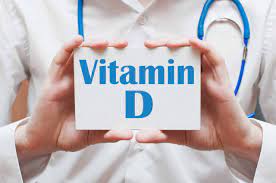In recent years, the importance of vitamin D has gained widespread recognition for its role in promoting overall health and well-being. Often referred to as the "sunshine vitamin," it is a unique nutrient that the human body can produce when exposed to sunlight. However, there are other sources of vitamin D, and understanding its benefits and absorption mechanisms can help us optimize our health. In this blog post, we will explore the various sources of vitamin D, its incredible benefits, and how the body absorbs this vital nutrient.
Sunlight: The most natural and efficient way for the body to obtain vitamin D is through exposure to sunlight. When ultraviolet B (UVB) rays from the sun reach our skin, a chemical reaction occurs, converting 7-dehydrocholesterol into pre-vitamin D3. This compound is then transformed into active vitamin D3 (cholecalciferol) in the liver and kidneys. While sunlight is a great source of vitamin D, factors like geographic location, time of day, season, skin color, and sunscreen use can affect its synthesis.
Foods: Vitamin D can also be obtained through certain foods, making it especially important for individuals with limited sunlight exposure. Foods rich in vitamin D include:
Fatty Fish: Salmon, mackerel, and sardines are excellent sources of vitamin D3.
Cod Liver Oil: A traditional supplement derived from the liver of codfish, it is exceptionally rich in vitamin D.
Fortified Foods: Many foods, such as milk, orange juice, and breakfast cereals, are fortified with vitamin D to help meet daily requirements.
Egg Yolks: While not as high in vitamin D as some other sources, egg yolks contain small amounts of this nutrient.
Benefits of Vitamin D
Bone Health: One of the most well-known benefits of vitamin D is its role in maintaining strong and healthy bones. It aids in the absorption of calcium and phosphorus from the digestive system, essential minerals for bone formation. Adequate vitamin D levels can reduce the risk of osteoporosis and fractures, especially in older adults.
Immune System Support: Vitamin D plays a crucial role in supporting the immune system, helping the body defend against infections and diseases. It can modulate immune responses, promoting a balanced and regulated immune function.
Mood and Mental Health: Emerging research suggests a potential link between vitamin D and mood regulation. Some studies have shown that maintaining adequate levels of vitamin D may help reduce the risk of depression and improve overall mental well-being.
Heart Health: Vitamin D may contribute to cardiovascular health by helping to regulate blood pressure, reduce inflammation, and improve blood vessel function. These factors collectively promote a healthy heart.
Absorption of Vitamin D
The absorption of vitamin D involves a multi-step process:
Skin Absorption: When the skin is exposed to UVB rays from sunlight, it produces vitamin D3, initiating the synthesis process.
Conversion in the Liver: Previtamin D3 travels to the liver, where it undergoes further conversion to become vitamin D3.
Kidney Activation: Vitamin D3 then travels to the kidneys, where it undergoes its final activation to become the biologically active form of vitamin D called calcitriol (1,25-dihydroxy vitamin D).
Intestinal Absorption: Vitamin D, whether obtained from sunlight or food, needs to be absorbed in the small intestine to be utilized by the body. It binds to vitamin D-binding proteins during circulation and is absorbed through specific receptors in the intestines.
Watch video- All about vitamin


